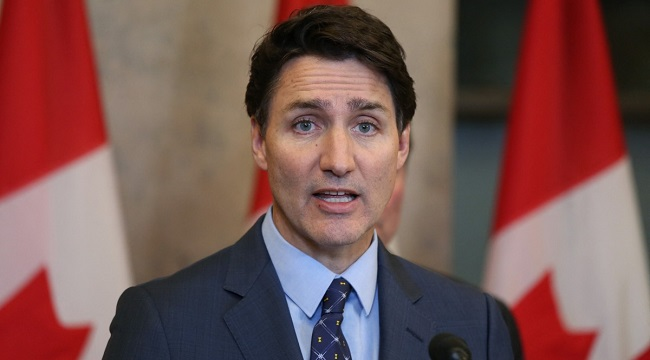Trudeau Resigns As Canadian Prime Minister After Nearly A Decade In Office.
In a momentous announcement from his residence at Rideau Cottage, Justin Trudeau has declared his intention to step down as both the leader of Canada’s governing Liberal Party and as Prime Minister. The news, which was broadcast live to an audience of 24,649 viewers, marks the end of an era in Canadian politics.
During a press conference in Ottawa, Trudeau confirmed he would remain in his current role until a successor is appointed by the Liberal Party. “This country deserves a real choice at the next election,” he stated, adding that Parliament would be prorogued until the 24th of March to facilitate this leadership transition.
Trudeau’s decision comes amidst escalating pressure from within his own party and across the political spectrum. His tenure, marked by progressive policies on climate change and social issues, has seen a decline in public approval, with polls reflecting his lowest ratings since taking office in 2015.
The Prime Minister’s speech highlighted the internal strife within the Liberal Party, which he suggested had become a significant distraction. “If I have to fight internal battles, I cannot be the best option in that election,” Trudeau remarked, alluding to recent political turbulence including the high-profile resignation of his Deputy Prime Minister and Finance Minister, Chrystia Freeland, last month. Freeland’s departure was over disagreements concerning the economic strategy in light of potential US tariffs under President-elect Donald Trump.
Speaking on the future of the Liberal Party, Sachit Mehra, the party president, announced plans for a swift transition, stating, “Liberals across the country are immensely grateful to Justin Trudeau for more than a decade of leadership to our party and the country.” He emphasized Trudeau’s role in making the party “the most open and inclusive movement in Canadian politics” and expressed gratitude for his service.
In a somewhat surreal twist, less than two hours after Trudeau’s announcement, Trump took to his social media platform, Truth Social, to jest about Canada becoming the 51st state of the US, suggesting benefits like no tariffs and enhanced security. This was met with a dismissal from Canadian officials, who described the comment as not serious.
Meanwhile, Jagmeet Singh, leader of the New Democratic Party (NDP), which had previously supported Trudeau’s minority government, was quick to react. Addressing the media, Singh criticized both the Liberals and the Conservative party, stating that the Liberals under any new leadership do not “deserve another chance.” He called for an immediate election and expressed opposition to the prorogation of Parliament, indicating the NDP’s readiness to vote against the government in any confidence motion.
The political landscape in Canada now shifts towards speculation on Trudeau’s successor, with names like Chrystia Freeland and former Bank of Canada governor Mark Carney emerging as potential candidates. The Liberal Party is set to commence the process of choosing a new leader this week, heralding a new chapter in Canadian politics.



